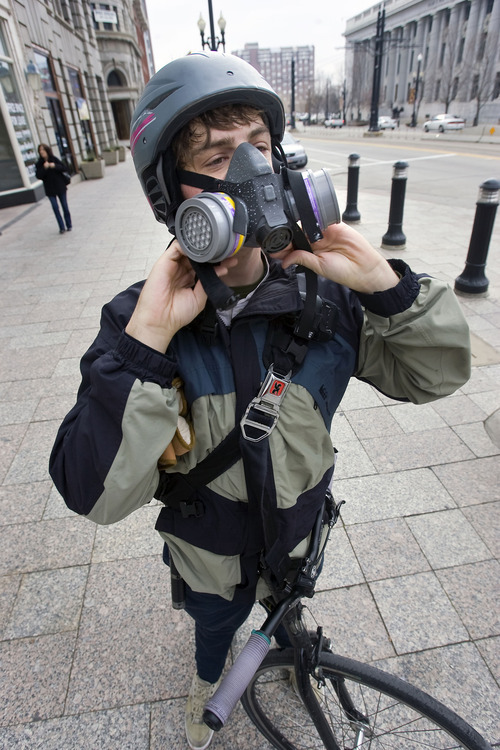This is an archived article that was published on sltrib.com in 2011, and information in the article may be outdated. It is provided only for personal research purposes and may not be reprinted.
In an 1802 letter to Danbury Baptists, Thomas Jefferson wrote, "I contemplate with sovereign reverence that act of the whole American people which declared that their legislature should 'make no law respecting an establishment of religion, or prohibiting the free exercise thereof,' thus building a wall of separation between Church & State."
Man's rationality is thin and his behavior complex. How are elected officials expected to suspend personal convictions and biases (some of which are religion-based) while discharging their secular responsibilities?
This becomes all the more problematic when one stops to consider how blind we often are to our prejudices and the neurobiological underpinnings upon which outward behaviors supervene.
We can no more expect Mormons elected to serve in Utah's legislature to suspend their LDS bias than we can expect a witness to tell "the whole truth and nothing but the truth," even though they have sworn to do so. The most we can expect from witnesses is an honest rehearsal of their understanding. But understandings inexorably fall short of the "whole truth."
Likewise, you cannot separate or isolate "the person" from "the legislator"; the former largely defines the latter.
Legislators are, in fact, the sum of their experiences. They cannot be expected to quarantine personal values and beliefs — that which was learned upon their mother's knee in chapel pews — nor are they consciously aware of the extent that such values color or guide their judgment.
We expect elected officials to draft laws and enact policies which, in part, reflect the will of the people. But what happens when the electorate constitutes a heterogeneous population that does not always identify with LDS ideals and ambitions?
Whatever degree of tension our respective differences create, the views of the majority must never be allowed to infringe upon the rights of the minority. Recall that Americans pledge to grant "liberty and justice for all," even though a yawning gulf may at times divide our religious and political persuasions.
We are likely to see the ruling as fair if the judge decides in our favor, and vagrant if he adjudicates otherwise. Most people agree that cronyism and nepotism, however common, are practices to be eschewed — especially so when the competition happens to be the prospective employer's nephew.
But attitudes soften and tolerance bends when it's our turn to be the nephew. What is seen by some to be grossly uneven is received by others as a measure of their good fortune. And for outsiders, therein lies the rub.
My criticism of Utah's political history reduces to this: Too often, what appears to have originated from the pulpit somehow manages to find its way to the Capitol Rotunda. Little imagination is required to connect the dots. But however unfair or inequitable may be the arrangement, neither the problem nor the practice is unique to the Beehive State.
On March 1, 2006, at a hearing on the proposed constitutional amendment to prohibit gay marriage, Jamie Raskin, professor of law at American University, was summoned to testify. After his testimony, Maryland's Republican Sen. Nancy Jacobs said: "Mr. Raskin, my Bible says marriage is only between a man and a woman. What do you say to that?"
Raskin replied: "Senator, when you took your oath of office, you placed your hand on the Bible and swore to uphold the Constitution. You did not place your hand on the Constitution and swear to uphold the Bible."
Secular humanists pine for the day when Christians of all stripes "Render unto Caesar the things which are Caesar's; and unto God the things that are God's" (Matt 22:21), ensuring that ne'er the twain shall meet.
Until then, however, any hope of fully respecting the "wall of separation between Church & State" is, I fear, a farcical pipe dream.
Kim M. Clark is an optometric physician in private practice in Portland, Ore. He and his wife Cindy (with dog Bailey) left Utah in 2009.



